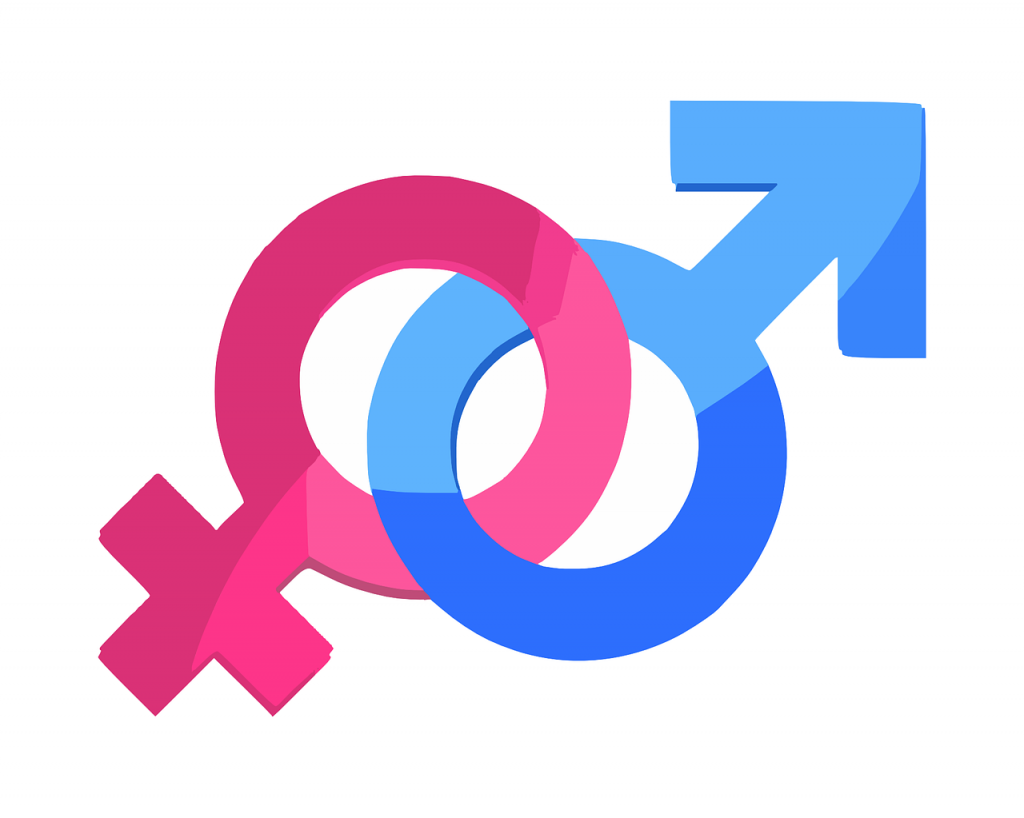Is The German Language Sexist? Posted by Constanze on Aug 29, 2018 in Culture, Language
German has three genders for its nouns: der (masculine), die (feminine) and das (neuter). A common point of confusion amongst German language learners is why each noun has its assigned gender – especially when there is no pattern to it and/or its gender doesn’t appear to make sense.
For example, a table in German is der Tisch (table), while a clock is die Uhr (clock). So, some would ask, why is a table masculine and a clock feminine? Does this mean all other furniture is masculine, too, and that all other electronic devices are feminine (the answer is ‘no’, by the way)? And then why is a girl in German not feminine, but neuter – das Mädchen – yet a man is masculine (der Mann) and a woman is feminine (die Frau)? Who decided all of this, and what were they thinking when they assigned everything its gender?!
The mistake is to think too deeply into this. The reality is that the gender of a German noun has nothing to do with what it is describing. Basically, the gender is of the word itself, and not of the person/object. There are even a few rules and patterns as to what noun has what gender, so yes, there is some structure to be found in this madness. You can read more about that in Sandra’s post German Nouns: Gender Hints, by clicking on the link.
Is German sexist?
 Recently, some feminist groups have claimed that the German language is sexistisch (sexist). This is because certain nouns, especially professions, change based on whether the person in question is male or female.
Recently, some feminist groups have claimed that the German language is sexistisch (sexist). This is because certain nouns, especially professions, change based on whether the person in question is male or female.
For example, in English a doctor is a doctor, whether they are male or female. In German, however, a male doctor is der Arzt, while a female doctor is die Ärztin.
Here are some other examples:
Baker: der Bäcker (male) / die Bäckerin (female)
Pharmacist: der Apotheker (male) / die Apothekerin (female)
Teacher: der Lehrer (male) / die Lehrerin (female)
Student: der Student (male) / die Studentin (female)
Of course, there are some instances in English where we still distinguish between male and female versions of roles. It’s quite common to still use the terms waiter and waitress, for example. But whilst a lot of these have become outdated in English (such as actor and actress; it’s now preferable to use the word actor for both men and women), in German this distinction is still prominent.
Waiter: der Kellner
Waitress: die Kellnerin
Actor: der Schauspieler
Actress: die Schauspielerin
Some professions do have gender-neutral words… but even some of those have feminine versions! For example, a female nurse is called die Krankenschwester (‘ill-people-sister’), while a male nurse is called der Krankenpfleger (‘ill-people-carer’). However, Krankenpfleger can be used as a general term by both men and women. Despite that, though, the word die Krankenpflegerin (female ‘ill-people-carer’) also exists. Another example: A female cleaner is called die Putzfrau (‘cleaning-woman’), while the gender-neutral term is der Raumpfleger (‘room-carer’). Again, the latter can be used by both men and women. But the word die Raumpflegerin (female ‘room-carer’) is also in use.
The perceived problem is that when people advertise for jobs, often they will use the male version of the job they are advertising for, simply because male words are dominant in German. So if a female teacher sees an ad looking for a ‘Lehrer’, they may assume a male teacher is being sought, and not apply. This may also lead women to feel excluded in the job market.
Either that will be the case or, when applying for jobs they will see something like this:
Lehrer/in
Raumpfleger/in
the /in indicates that women in these professions may also apply. It is saying either a Lehrer (male) or a Lehrerin (female) can apply.
Another way they may see it written is:
Lehrer (m/w)
Raumpfleger (m/w)
The m stands for männlich (masculine) while the w stands for weiblich (feminine). So the (m/w) means that both men and women can apply, even though the male word for the profession was used in the ad.
Many now see this overall situation as problematic and are calling for changes to be made to the German language to make it ‘less sexist’.

What do you think – is this possible? Is it necessary? What changes do you think could be made to the German language to achieve it? Get creative and leave me your suggestions and comments below!
Bis bald
Constanze

Build vocabulary, practice pronunciation, and more with Transparent Language Online. Available anytime, anywhere, on any device.





Comments:
Tom:
I think German should be simplified to make it more accessible to non-Germans, besides, considering the somewhat incongruous gender issue, as you pointed out, the institute responsible for the German language should make effort to modernize the language.
M:
While I think it would solve many grammatical issues to make German nouns all one gender, it would take away from some of the innate “musicality” of the language. Also, how to decide? Perhaps neutral and then everyone could be happy!
Peggy:
Trying to learn German for years, & not getting far. I decided to use d’ for all these genders. Oh, how unGerman of me.
Priyanka:
Ich lerne Deutsch seit langem, und das hat mir nie eingefallen. Jetzt nachdem ich diesen Beitrag gelesen habe, macht es Sinn. Außerdem, wenn ich meinen Senf dazugeben darf, ich denke, dass wir zu viel daran denken und Sexismus und Ausgrenzung waren vielleicht nicht gemeint. Der Beitrag war allerdings sehr interessant.
Margaret Ellerton:
I found reading the explanation of the gender of nouns very interesting. It’s not going to make learning the
language any easier but it gives me a little more understanding.
Laura Camila:
In Colombia some feminist argue because there is not feminine word for some professions, and in Germany the complain because there is… there’s no pleasing for anybody anywhere
Constanze:
Danke for all of your comments on this – it’s a very interesting topic, indeed! 🙂
Constanze
Hanna:
No the German LANGUAGE is not sexist, it’s how most people use it that’s sexist. There is no awareness there. And I mean, of course it is quite hard to use the German language in a gender-neutral way, since you have to take care of all the words that are in agreement with the gender of the noun (i.e. you need to gender the article, the adjective, the pronouns, the nouns itself; as opposed to English where you just need to make sure the pronoun is gender-neutral, and singular they is such a beautiful construction) but it is possible.
@ Tom… there is no German language institute. And I don’t think the German language should be changed at all!!! It’s how people make use of it that should be changed!